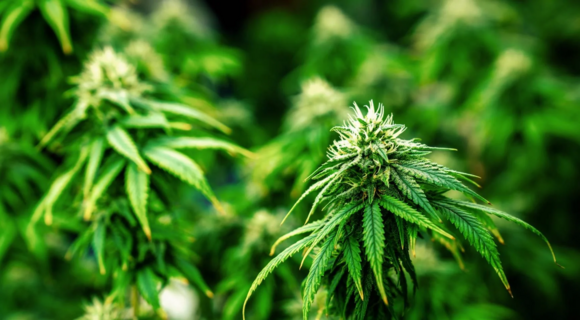
Cannabis plant with fully grown buds, ready to be harvested - Credit: BiancoBlue /DepositPhotos- License:DepositPhotos
The Dutch government is moving ahead with its regulated cannabis experiment despite significant concerns from coffeeshops, local officials, and members of the ruling coalition. As of April 7, coffeeshops in the ten participating municipalities will no longer be allowed to sell illegally sourced cannabis, marking the most substantial shift in the Netherlands’ drug policy in decades.
This transition effectively ends the long-standing gedoogbeleid, or tolerance policy, under which coffeeshops could legally sell cannabis while relying on illegal sources for supply. Under the new system, all cannabis must come from government-approved growers. Minister of Justice and Security Van Weel said he expects the “quantity, quality, and diversity” of legally grown cannabis to be sufficient by the deadline to meet consumer demand.
However, coffeeshop owners strongly disagree. In a letter to the mayors of the participating municipalities, they warned that the transition is premature and could lead to a failed experiment. They cited supply shortages and concerns about the quality of legally produced hash, which many customers still reportedly prefer to obtain from illegal sources.
“In our view, a complete switch to legal products can only take place if every individual coffeeshop participating in the weed experiment has access to a sufficient number of different types and of good quality,” the coffeeshop owners wrote.
Despite government assurances, the concerns raised by coffeeshops are backed by data. The experiment, which began in December 2023, has faced ongoing supply chain problems. Of the ten designated cannabis growers, only seven are currently operational, with delays affecting the others. Coffeeshop owners report that while there is some diversity in the legally available products, supplies remain inconsistent, with frequent shortages and missing product categories.
“We have expressed our concerns before, but the date is getting closer, so we are sounding the alarm,” said Willem Vugs of De Achterdeur, a Tilburg-based coffeeshop association. He noted that the transition remains particularly problematic for hash, pre-rolled joints, and edibles.
Fears of increased illegal trade
Local officials have also expressed unease about the transition, warning that the move could inadvertently drive more consumers toward the illegal market. Breda Mayor Paul Depla, one of the most vocal supporters of the cannabis experiment, acknowledged the risk.“If there is no good supply, that is a big problem,” Depla told BN De Stem. “Then people will go shopping on the street, and that is the worst that can happen. In addition to it being illegal, we have no insight into the health effects,” he said, referencing concerns about pesticide use in unregulated cannabis.
Tilburg Mayor Theo Weterings, another key proponent of the experiment, shares these concerns. Both he and Depla were instrumental in launching the initiative, with their cities being the first to implement the experiment in December 2023. While they continue to support the program, they believe the next phase should only proceed when supply issues are resolved.
“The trial is going perfectly: more and more people are opting for legal weed, and there is less street trading. But I do not want the experiment to fail due to the lack of production,” Depla said.
The cannabis experiment was originally introduced under previous Dutch governments, spearheaded by D66. However, none of the current ruling parties support it. The PVV, in particular, has attempted multiple times to cancel the initiative. Minister Van Weel, however, argues that abandoning the program now would be a breach of trust with the participating businesses and municipalities.
“It fits within the principles of good governance and a reliable government to carry out what is included in the enacted law,” Van Weel stated.
He emphasized that ending the experiment prematurely would require new legislation and could force the government to financially compensate both growers and coffeeshops for their investments. Additionally, shutting down the program early would make it impossible to properly assess the effects of a fully regulated supply chain.
To address ongoing concerns, Van Weel has scheduled a meeting between coffeeshop owners and licensed growers at the end of March, where they will discuss supply issues and the quality of legal cannabis. The ten participating municipalities—Almere, Arnhem, Breda, Groningen, Heerlen, Voorne aan Zee, Maastricht, Nijmegen, Tilburg, and Zaanstad—are still expected to proceed with the final transition on April 7.

Dutch government presses ahead with cannabis experiment despite strong opposition
The Dutch government is moving ahead with its regulated cannabis experiment despite significant concerns from coffeeshops, local officials, and members of the ruling coalition. As of April 7, coffeeshops in the ten participating municipalities will no longer be allowed to sell illegally sourced...

Last edited:
